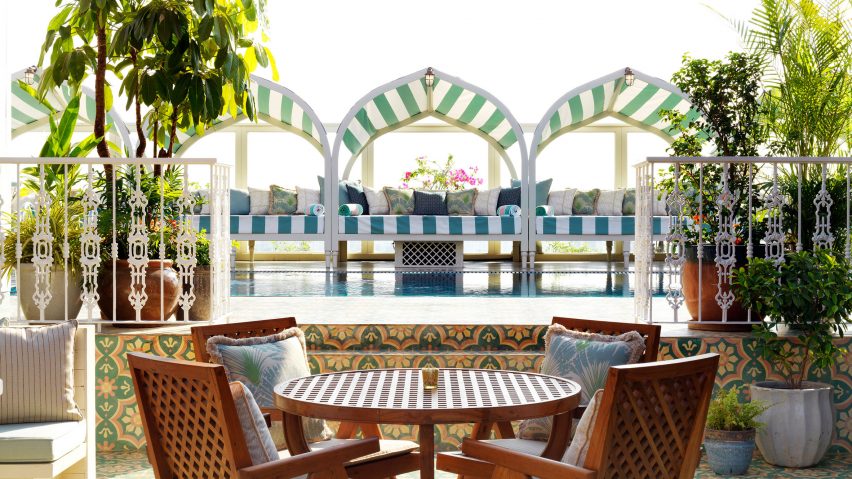
Soho House Mumbai references traditional Indian textiles
Soho House has opened its first Asian outpost in Mumbai, India, featuring pattern-heavy interiors inspired by regional textiles and crafts.
Designed by the brand's in-house design team, Soho House Mumbai is housed in a refurbished 11-storey building in the city's affluent Juhu neighbourhood, which is home to a number of Bollywood celebrities.
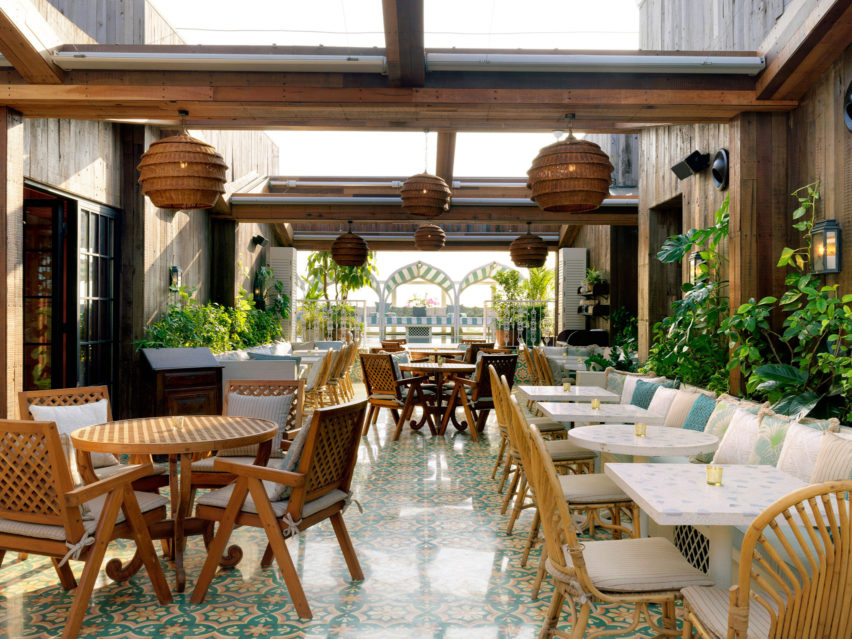
Featuring 38 guest bedrooms, a cinema, two restaurants, and rooftop pool, the members-only club contains only fixtures and soft furnishings that were either sourced locally or boast traditional Indian patterns.
This was because Soho House founder Nick Jones and design director Linda Boronkay wanted to give the venue an aesthetic that authentically represents India through its use of colour and material.
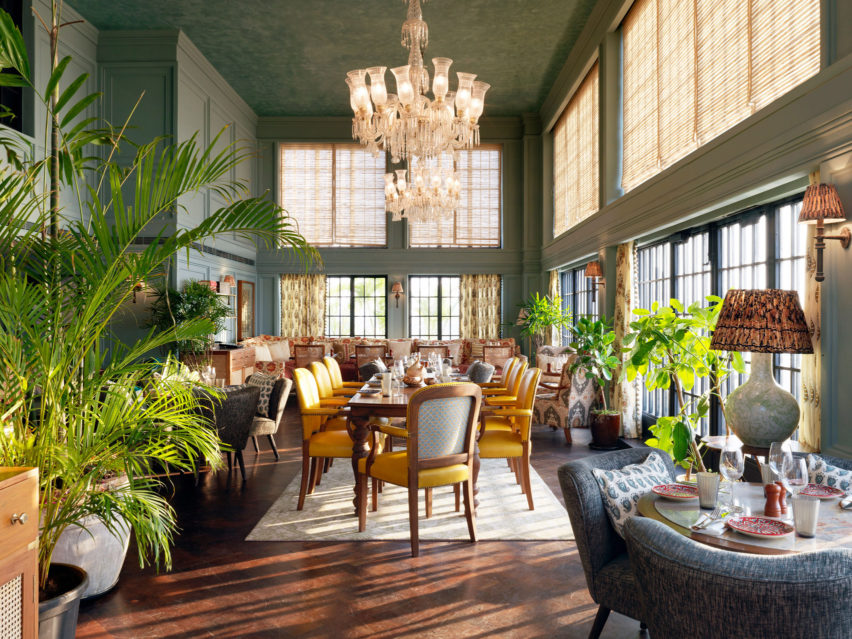
"Our members and customers are well travelled, curious, and creative people who are genuinely interested in the cities they are visiting, and we bring that to them with the use of regional materials and bespoke pieces sourced nearby," Boronkay told Dezeen.
"Our aim is that our clubs become the physical manifestation of the social fabric, historical and cultural heritage of each and every place where we have Houses."
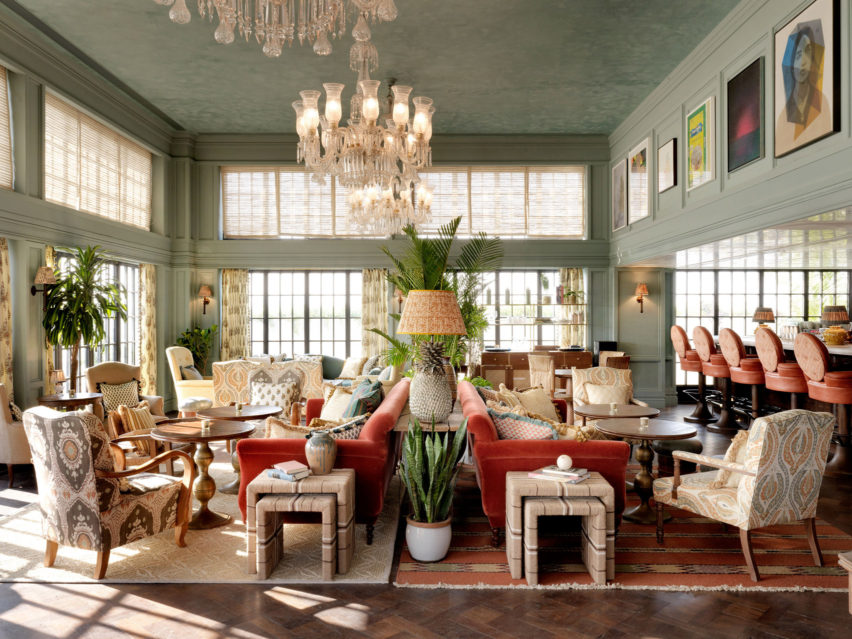
Soho House Mumbai is the third new branch that the hospitality brand has opened this year, following Soho House White City in London, which references the building's former use as the BBC headquarters, and Soho House Amsterdam, which takes cues from the colour palette of Dutch Master paintings.
Like other Soho Houses, the rooftop pool is one of the building's key features. The terrace, which overlooks the popular Juhu Beach, is covered in typical Indian cement tiles. Guests can choose to relax on cane chairs made by local craftspeople, or large daybeds that are shaded by striped awning.
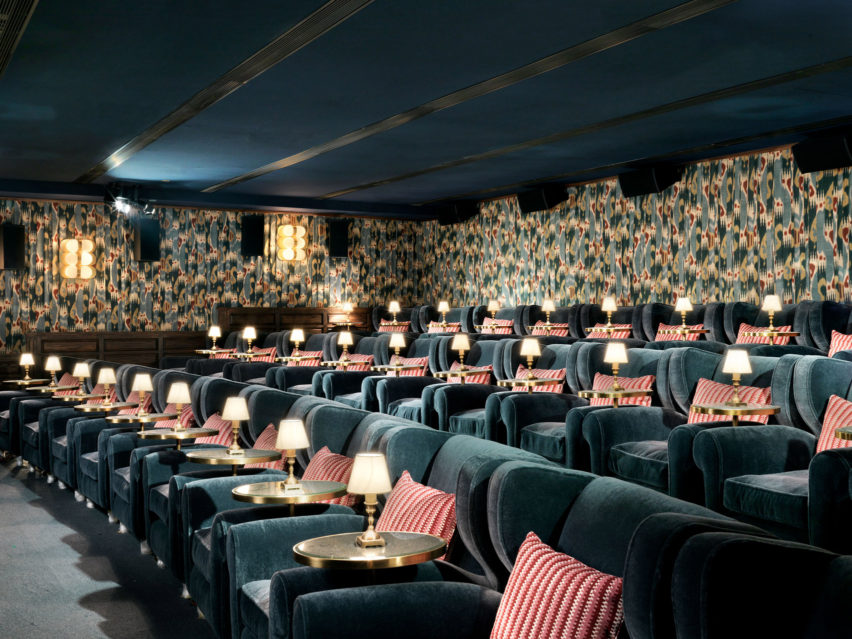
The main lounge area for members is on the eighth floor, featuring sage green walls, dark teak floorboards, and cut-glass chandeliers. Bolder splashes of colour are offered by vermilion velvet sofas and a selection of artworks on display by South East Asian creatives.
A cinema is on the first floor, with padded walls upholstered using textiles hand printed in India's Rajasthan region.
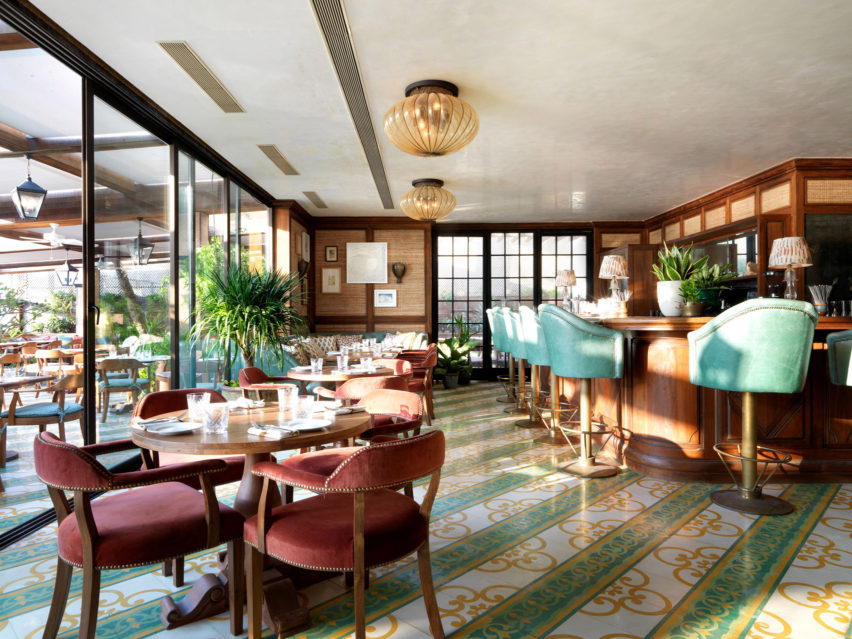
On the ground floor are two eateries that are open to the public – Italian restaurant Cecconi's, which is lined with leafy potted plants, and a more relaxed cafe named The Allis, which is decked out with decorative ceramic tiles.
"We like to mix the members and public food and drink offerings, as it opens up the community around the house and brings a good buzz and fresh energy to the spaces," explained Boronkay.
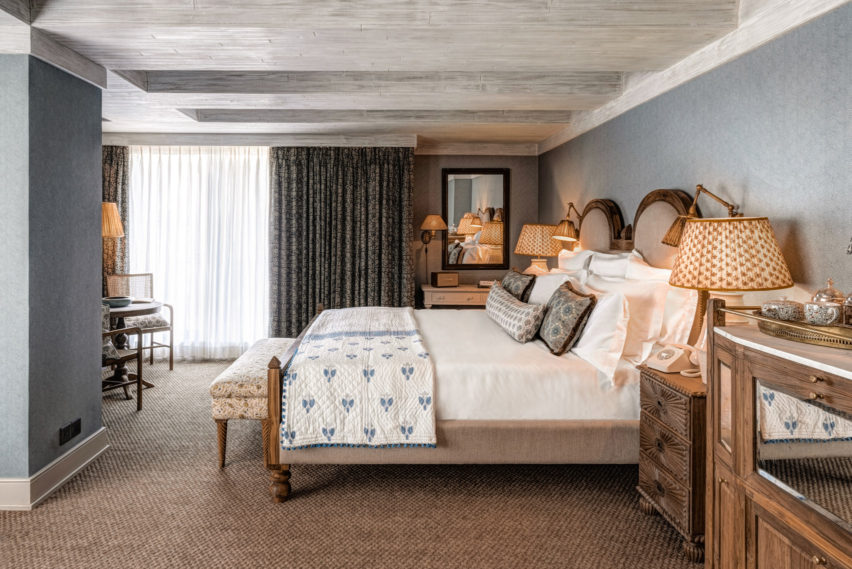
The hotel guest suites are spread between the third and seventh floors. They are furnished with four-poster beds, bone inlay side tables, wheat-coloured sisal carpets and lampshades made from vintage saris.
Photography is by Fabien Charuau.